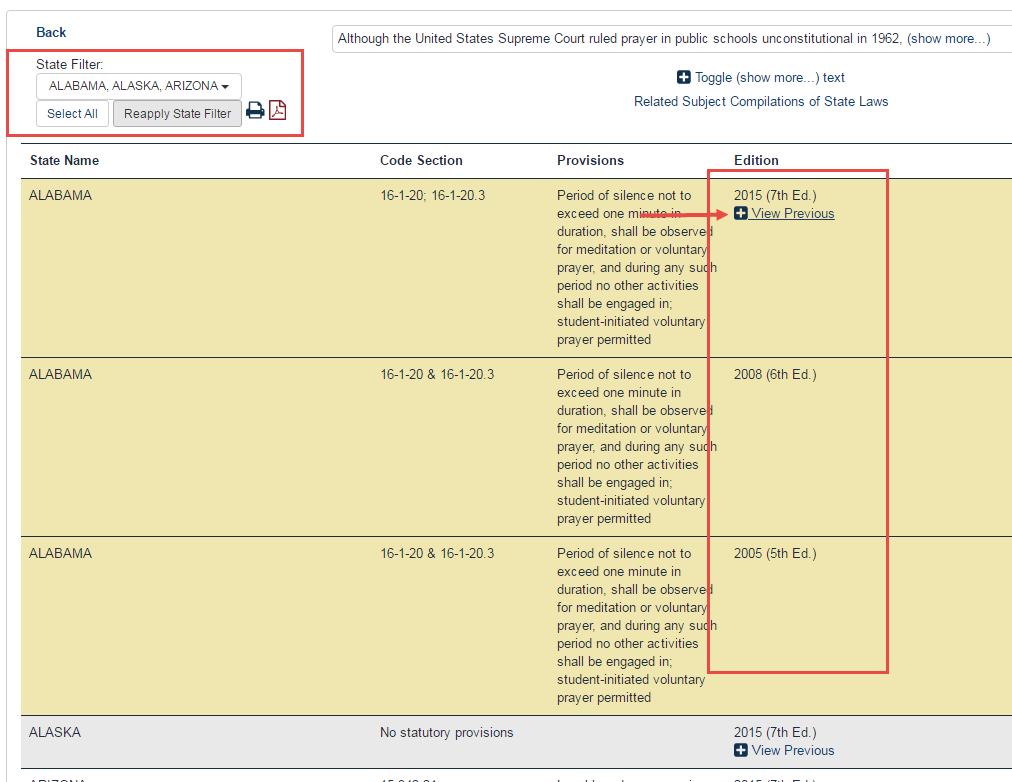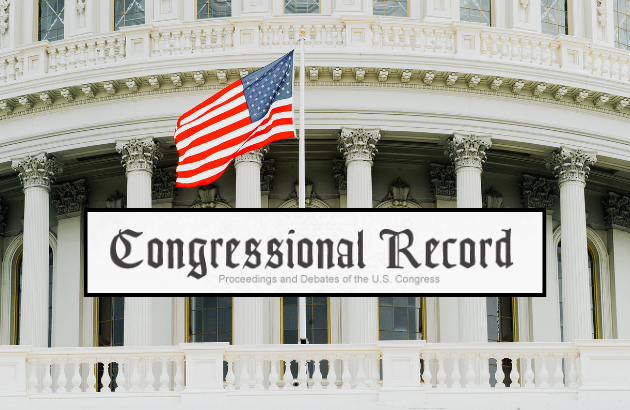Blog
Updated: National Survey of State Laws
This article is republished with permission by W.S. Hein. View the original article here.
Last year, HeinOnline teamed up with Rich Leiter, Director of the Schmid Law Library and Professor of Law at the University of Nebraska College of Law, to create a database version of National Survey of State Laws. This easy-to-use resource provides an overall view of the most sought-after and controversial legal topics in the United States and enables users to make basic state-by-state comparisons of current state laws.
Summary of Winter 2017 Updates - By Rich Leiter
The Winter 2017 release includes several important updates, some of which come as the result of the November 2016 election.
With this new release, there are two new chapters, one that has been slightly re-worked, and four that have been updated.
The first new chapter covers Child Support Guidelines. This chapter was worked up by David Pontier, a student in my Advanced Legal Research course, as his final project. It lays out an interesting comparison of how states ensure that children receive an adequate level of support from their families after a marriage splits up. The differences among states may surprise you.
The second new chapter deals with Bullying, the subject of much news coverage and much legislative attention lately. Many states have moved to create laws to prevent bullying and protect people from being bullied. However, because definitions of bullying range from “harassment” to simply being mean to another person, and because most bullies and their victims are usually juveniles, it is difficult to make such behavior a crime without stepping on people’s free speech rights. Therefore, most states have simply passed legislation that instructs schools to make rules to prohibit and punish bullying by students, with penalties that are appropriate to the school’s powers to create and enforce standards of conduct. This topic was originally covered in the Stalking chapter but has become a large enough matter that it warrants its own treatment.
Gun Control is an area that is constantly changing. Over the years there have been many controversial laws concerning private citizens’ ownership of handguns: waiting periods, background checks, and prohibitions against possession of firearms on or near school grounds. The issue has expanded to now include not only possession of handguns in public places of all kinds, but also whether handguns may be concealed when carried in public. Since the laws have grown to cover so many nuanced aspects of public ownership, we have added a new column to the Gun Control chart.
Marijuana laws were changed in seven of the states that had initiatives on the November ballots—California, Florida, Maine, Massachusetts, Montana, Nevada, and North Dakota. Only in Arizona did the voters not approve their initiative.
Nebraska voters voted to reinstate the death penalty after a lengthy back and forth between the legislature and the governor in which the state legislature voted to repeal the death penalty, the governor vetoed the repeal, and the legislators then overrode the veto. The governor then led an initiative (and spent a considerable amount of his own money) to get the death penalty on the ballot and the voters voted to reinstate it!
The Adoption and Annulment and Prohibited Marriage chapters have also been updated in light of the Supreme Court’s Obergefell decision which legalized same-sex marriage. Since that case now prohibits states from denying same-sex couples the right to get married, states that once had laws that listed same sex as a prohibited marriage have to change their statutes, but many states have not bothered to amend their codes to reflect this and have left the outdated language on the books. Likewise, the laws concerning adoption are also affected because many states had laws that prevented same-sex couples from legally adopting children. Some states have amended and updated their laws to reflect changes to the recognition of same-sex marriage, some have not.
Using the National Survey of State Laws Database
HeinOnline’s user-friendly interface and the content of National Survey of State Laws combine to produce a powerful yet simple-to-navigate database. Search the database or browse laws by either category or topic. The current edition and all prior editions are available in HeinOnline’s fully searchable, image-based PDF format:

Compare only certain states’ laws, or view laws as they appear in the current edition compared to the two previous editions. Selecting a law from either the list of categories or the list of laws from the collection homepage will produce an easy-to-use comparison chart, which will include information pertaining to the law of each state. For example, click Prayer in Public Schools:

New to National Survey of State Laws? This video provides an excellent overview of the database.




